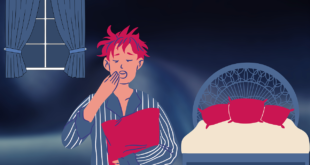The Ebola virus is transmitted in the bodily fluids of people who are seriously ill, who are likely to be vomiting, bleeding or have diarrhoea.  Blood, faeces and vomit are the most infectious fluids, and in late stages of the disease even tiny amounts can carry high loads of virus. But a nurse who got a patient’s blood on their hands could wash it off with soap and water without any ill-effects. He or she would become ill only if they had a cut or abrasion on their hand or touched their mouth, eyes or nose, which would allow the virus to pass into their bodily fluids.What are the symptoms?
Blood, faeces and vomit are the most infectious fluids, and in late stages of the disease even tiny amounts can carry high loads of virus. But a nurse who got a patient’s blood on their hands could wash it off with soap and water without any ill-effects. He or she would become ill only if they had a cut or abrasion on their hand or touched their mouth, eyes or nose, which would allow the virus to pass into their bodily fluids.What are the symptoms?
It can take two to 21 days for symptoms to show, although usually it is five to seven days. Typically, the first signs are a fever involving a headache, joint and muscle pain, sore throat and severe muscle weakness. Many of those symptoms are similar to flu, so Ebola is not immediately obvious, though it should be suspected in anyone who has been in west Africa recently. After that come diarrhoea, vomiting, a rash and stomach pain. The kidneys and liver stop working properly. Patients may bleed internally and also from the ears, nose, eyes and mouth.
What about sweat – for example could I get Ebola from using gym equipment?
No. Nobody who had Ebola and was symptomatic, with intense muscle weakness and a fever in the early stages, would be well enough to go to the gym – and until they are symptomatic, they are not infectious. Sweat, anyway, is probably not a source of large amounts of virus – in fact, the World Health Organisation (WHO) says whole live virus has never been isolated from sweat.
How about saliva?
WHO says saliva at the most severe stage of the disease, and also tears, may carry some risk, but the studies are inconclusive. The virus has been detected in breast milk. A 2007 study in the Journal of Infectious Diseases is probably the most informative on where the virus hides.
Can I get Ebola from a toilet seat?
Yes – faeces from somebody with Ebola are a real hazard and the virus has also been detected in urine. But there would only be a danger if a seriously sick person had used the toilet and contaminated it and that is most likely in their home or hospital. Public toilets, in general, are very unlikely to be a risk.
Can it be sexually transmitted?
Yes, and the virus lasts in the semen of people who have recovered, maybe for as long as 90 days.
Could I catch Ebola from using a taxi that has taken a patient to hospital?
The virus can be transmitted on surfaces that bodily fluids have touched, so if somebody had bled or vomited on the seat, there would be a risk to anybody who had a cut or touched their face with contaminated hands. In Europe or the US, if a patient was diagnosed with Ebola, there would be a massive effort from the public health authorities to trace their movements as well as their contacts. Any taxi they had travelled in while sick would have to be decontaminated.
Could I catch Ebola from door handles a patient had touched?
Yes, if the handle was contaminated with blood, vomit or faeces, which would be more likely in the house where the patient had been living when they fell sick, or in the hospital. But if people have intact skin, do not touch their eyes, nose or mouth and frequently wash their hands, they will not get infected.
What can be done in railway stations, schools or other public places to prevent contagion?
There are strict decontamination procedures by Public Health Englandthat must be followed. Any area visibly contaminated – where there is blood, vomit or faeces – and toilets and surfaces lots of people touch, such as door handles and telephones, must be wiped with disposable towels to remove any visible fluids, then cleaned with detergent or soap and water and allowed to dry. Then they must be disinfected, for instance with diluted bleach – one part bleach to four parts water. Those who do the cleaning must be fully covered, with long sleeved shirts tucked into disposable gloves and trousers tucked into socks and closed shoes. Any cuts or abrasions must be covered with plasters. But there is no need to clean corridors or areas that the person has just passed through..
Source: The Guardian
 Daryeel Magazine
Daryeel Magazine



